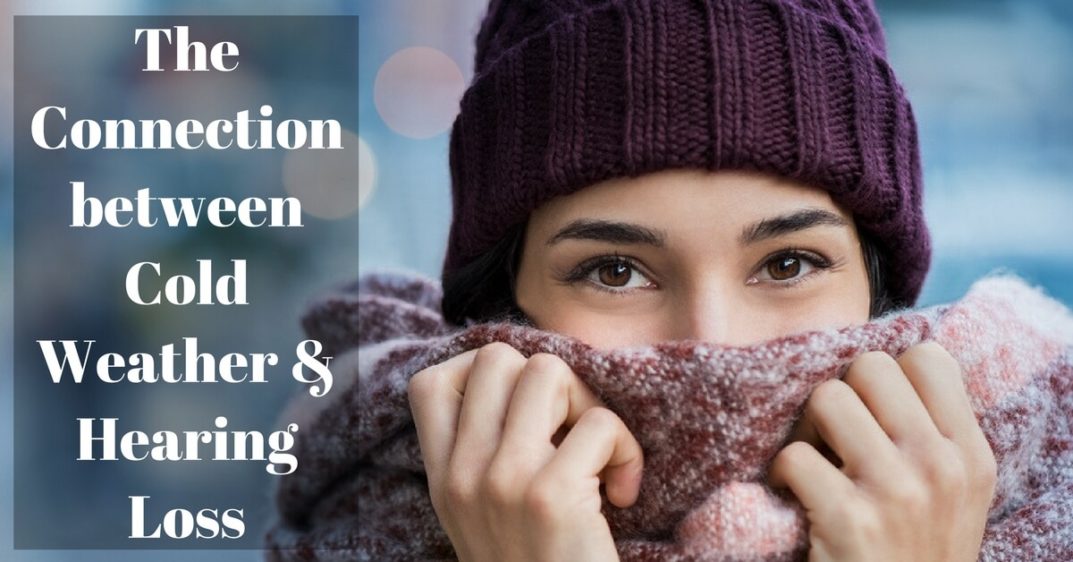Here in Michigan, we’re no strangers to cold weather. Living here, we know how to stay warm all winter long, between chats by the fire and layering up on clothing. Of course, the winter weather often brings along more vulnerability to colds and flus, especially for those less-than-hardy immune systems. Did you know that cold weather could also affect your hearing? Read on to learn more about this curious correlation between cold weather and hearing loss.
Exostosis of the Ear Canal – An Ear Condition Related to Colder Temperatures
Exostosis of the ear canal, or surfers ear, is a condition that leads to abnormal bone growths within the ear canal as a reaction to cold weather or temperatures. Commonly known as surfers ear, this condition is frequently found amongst surfers whose activity puts them in contact with both cold water in the ear canal and a breeze that causes a quick drop in temperature inside the ear canal.
With surfing, the exposure to cold water and wind could cause bone growth surrounding the ear canal, which could eventually lead to a blockage in the ear canal. Furthermore, this bone growth has the potential to trap ear wax or water deeper inside the ear canal, which could cause infection and put you at risk for hearing loss.
Though it is called “surfers ear,” the condition actually affects any number of people who participate in water sports that put them in contact with cold water, wind exposure, and lower temperatures. These sports include windsurfing, kayaking, sailing, jet skiing, kitesurfing, and diving, to name a few.
Symptoms of surfers ear include decreased hearing or hearing loss (temporary or continuous), increase prevalence of ear infections which could cause ear pain, and difficulty removing water from the ear, which could lead to a “plugged up” sensation. Surfers ear is most commonly found among people in their mid-30s to late-40s, though it could really happen to anyone at any age with enough exposure.
To avoid the condition, hearing specialists recommend avoiding activity during extremely cold or windy conditions, and keeping the ear canals as dry and warm as possible. For watersports, use earplugs, wetsuit hoods, swim caps, or diving helmets.
How does Exostosis of the Ear Canal Connect to Hearing Loss & Cold Weather?
Research finds that cold weather could lead to conditions of the ear – tinnitus (ringing of the ear) and tinnitus. With the potential of bone growth or hardening earwax, people with begin to experience some of the symptoms of surfers ear. According to Dr. Roger Henderson, “In severe cases, cold weather can cause abnormal bone growths within the ear canal…this is the body’s way of attempting to protect the ears by creating a barrier against the cold.”
He continues, “Exostosis can constrict the ear canal, contributing to increased earwax build-up as the ear can no longer expel earwax effectively. This can be heightened in cold weather as wax can harden when ears are exposed to low temperatures, making ears more likely to become blocked.”
In other words, your ear canals are “programmed” to protect themselves from cold temperature. Earwax could harden, leading to blockages that might cause tinnitus or hearing impairment. Even in the summer, our proximity to Lake Michigan means we’re participating in a number of water sports. It’s important to keep this condition in mind during the warmer months!
Cold Weather and the Use of Hearing Aids
If you treat your hearing loss with hearing aids, cold weather could have an amplified effect: “individuals who use hearing aids are at a much higher risk for hardening earwax because having a ‘foreign object’ in the ear cases it to produce more wax. When wax builds up in the ear, it can lead to infections, earaches, headaches, and tinnitus.”
When it comes to earwax, avoid using cotton swabs to remove the wax. Cotton swabs are ineffective at removing earwax, despite being advertised to do so. Rather, visit us a medical professional for earwax removal.
It might seem difficult to keep your ears warm with hearing aids, especially because hats or earmuffs could block the microphones. There are a number of options out there, though – so get creative with your winter accessories! Even a loose headscarf around your neck/ear area could help. Try not to leave your house with your hair wet, as cold wet hair could affect your hearing aids. Headphone earmuffs are an excellent option – allowing you to still access sounds while staying warm.
Visit Us at Comprehensive Ear and Hearing
Are you having trouble with your hearing aids? Do you believe winter temperatures may be affecting your hearing? Visit us at Comprehensive Ear and Hearing, where we are accustomed to maintaining good hearing health – and staying warm in Michigan’s winter!


